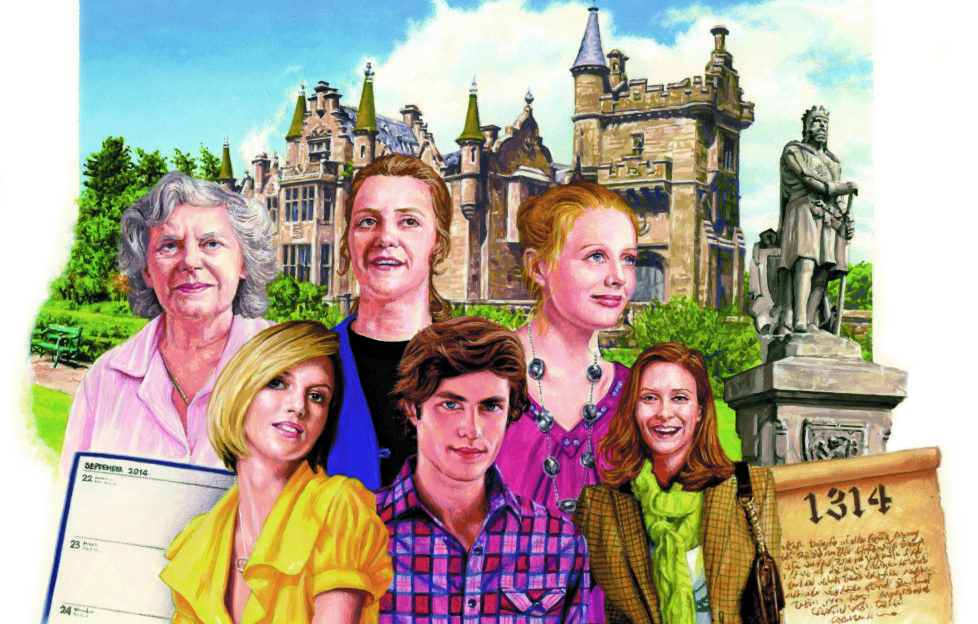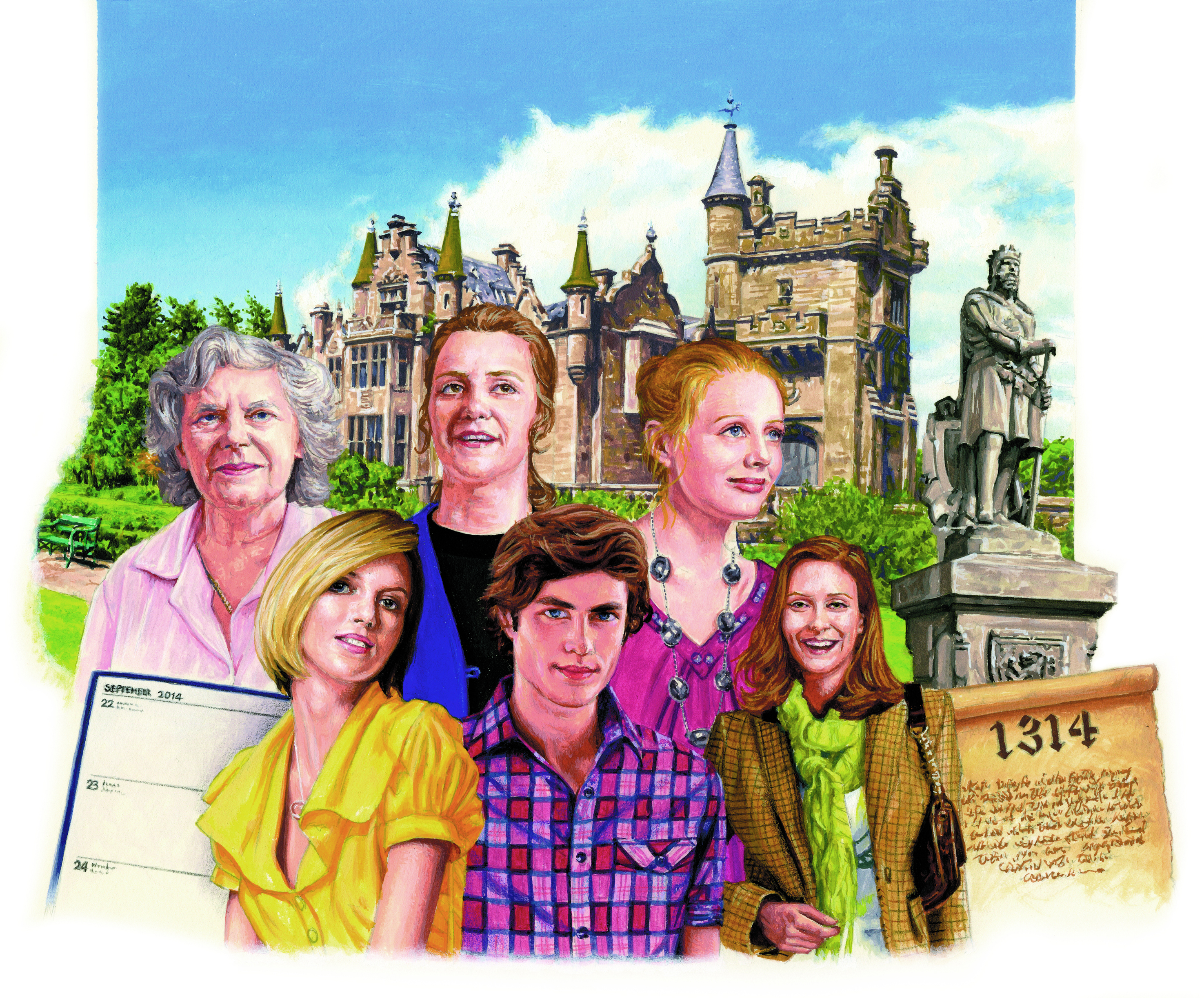Echoes From The Past – Episode 28

Echoes From The Past by Joyce Begg
« Previous Post- 25. Echoes From The Past – Episode 25
- 26. Echoes From The Past – Episode 26
- 27. Echoes From The Past – Episode 27
- 28. Echoes From The Past – Episode 28
- 29. Echoes From The Past – Episode 29
- 30. Echoes From The Past – Episode 30
- 31. Echoes From The Past – Episode 31
Mrs Harris’s house was more up-to-date than Aunt Bea’s, and had all the modern attributes of double glazing, double garage, and white painted trim. Holly parked on the roadside, not wishing to leave tracks on the pristine gravel, and trying to get an idea of Mrs Harris from the outside of the house.
The front garden was a model of modernism, with stark paving and an occasional concrete wall, rounded but austere. The severe lines were broken by various types of planting, tall reeds and smaller grasses, which were strangely pleasing.
There was not a lot of colour, but the greens and greys against the backdrop of the white house were certainly elegant. Holly wasn’t sure she could live with quite such a degree of austerity. She would have loved a few roses. But she could see that aesthetically the garden was all of a piece, and probably cost a great deal of money.
If the garden was an indicator of Mrs Harris’s preferred style, the house fell into line. As Mrs Harris opened the door, Holly could see the clean uninterrupted lines of the hall behind her. Dunskillen’s hall looked almost cluttered in comparison. It made Holly wonder where the Harrises put their mail, or car keys, or gloves, when they came in the door. There was no little occasional table with a vase of flowers on it, which would have been a lot more welcoming.
“You must be Holly Seagrave,” the woman said. She was tall and thin, with discreet highlights in her greying hair, a designer dress and a gold necklace that shouted money. She held out a hand with several rings on it. It seemed that personal decoration was in a different category from domestic.
“Mrs Harris.” Holly smiled.
“Come in.”
Mrs Harris stood to one side as Holly passed, closed the door, and then led the way to what was presumably the drawing-room. Again, it was spare to the point of austere. The sofas were elegant, but did not look comfortable. The fireplace sported a large vase of desiccated flowers in an elegant display, and the mantelpiece had a lamp at each end and a gold carriage clock in the middle.
But it was the wall at the end of the room that was drawn to Holly’s attention. It was totally bare, though Holly got the feeling that it hadn’t always been so.
“We did have a painting there once, but I didn’t ever feel that it was in the right place. I’ve moved it to the dining-room. But you see the problem. It’s a sizeable space, but at the same time I don’t want something that would dominate the room. Or rather, I don’t want something full of colour. It has to draw the eye without being vulgar,” Mrs Harris finished.
“I see.”
Holly looked round at the colour scheme, which was sage and beige with a touch of gold, not unlike the grasses against the concrete outside.
“And is there any theme you’d like represented in the piece? I mean, would you prefer it to be abstract, or do you have any thoughts on what the content might be?”
Brenda Harris frowned a little.
“Not sure I follow you.”
“Well, perhaps there’s some place or some landscape that is of special interest to you that I might take shapes and colour from. Or you might prefer something architectural –”
“Ah, I see what you mean.” She thought momentarily. “We’re both very fond of Florence, but I don’t suppose you’d be able to make anything of that.” Her smile had a hint of condescension. “You’re not exactly Leonardo, are you?”
Holly bit her lip.
“Of course not.” However, she was glad she had asked regardless. Florence as a subject would be a gift to work on.
“And it wouldn’t have to be too expensive either,” Mrs Harris continued. “I drive a hard bargain, you see, Miss Seagrave.” This was said with a degree of smugness that tempted Holly to tell her to keep her commission. But she resisted.
“We would have to discuss all sorts of details, Mrs Harris,” she said briskly. “I would have to know what dimensions the piece would be for me to work out a price. And I must tell you that I am at present working on another commission, so I wouldn’t be able to start for perhaps six weeks. What I can do is come up with some suggestions, some drawings perhaps, and an idea of the price. Does
that sound satisfactory to you?”
“I suppose so.”
The conversation did not continue long after that. Measurements were taken, and Holly asked a few more technical questions, taking notes throughout. There was no suggestion of coffee or any other refreshment, which made the interview commendably brief.
It felt as though she was barely in the house before she was out of it again. It was as they stood on the doorstep that Holly said, “You have a most interesting garden. Very stylish.”
Again Brenda Harris looked pleased with herself.
“Well, of course, we had the services of a professional landscape artist.” She looked out over her domain. “Considering how good the design is, I reckon we got it at a bargain price. As I say, Miss Seagrave, I do not pay over the odds.”
“No-one has ever complained about my prices,” Holly said with a forced smile. “I believe in fairness.”
“Well, let me know when you have something to show me.”
“I will.”
She was about to ask permission to photograph the garden, as an example of the kind of minimalist style that Mrs Harris favoured, but the door was closed before she could say the words. She took the photographs anyway, from various angles. There was no denying the garden was beautiful in its own way. The photographs were lovely. Pity about the lady.





